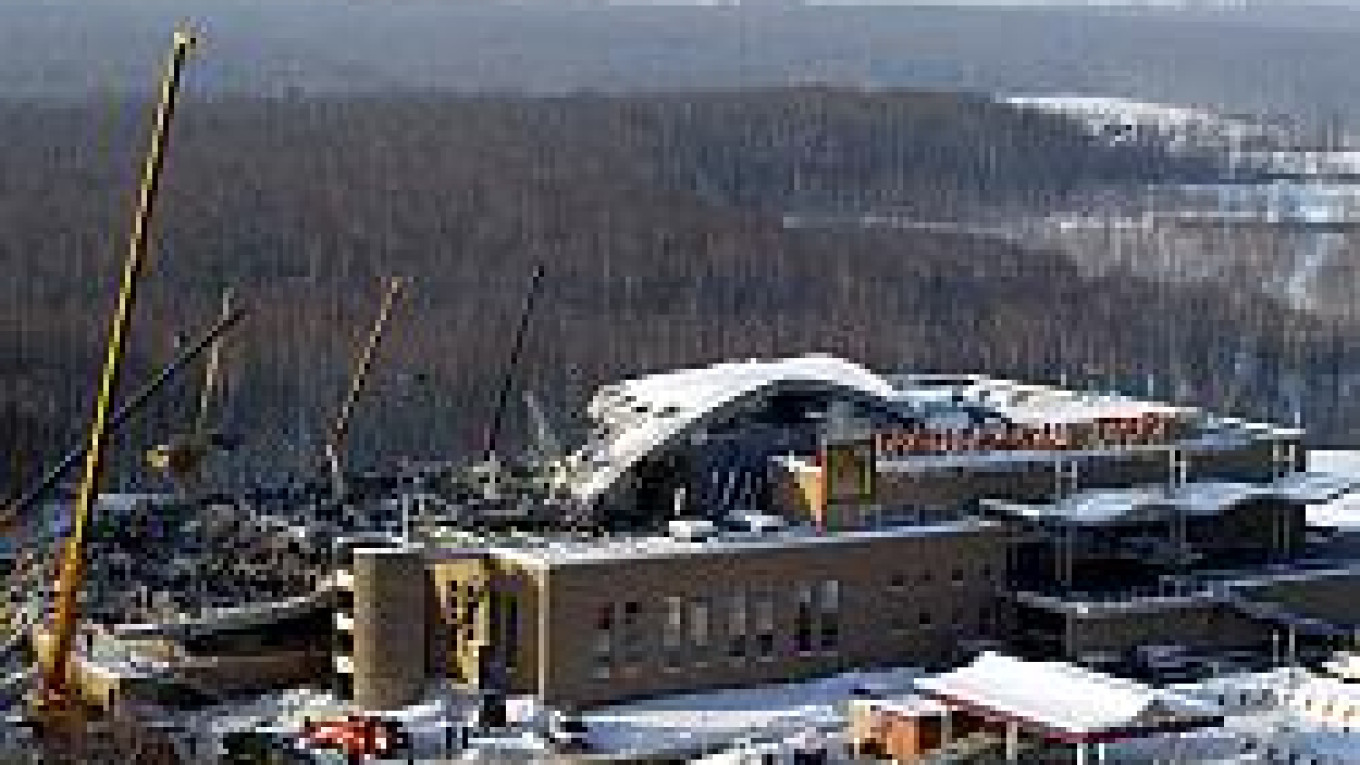The entertainment center, the largest of its type in Eastern Europe, will reopen its fitness club, discotheque, bowling alley, restaurant and, probably, swimming pool, Transvaal said on its web site. Those venues were little affected by the collapse on Feb. 14, it said.
Moscow city government spokesman Alexei Vvedensky said the parts of the complex left standing pose no visible danger to visitors.
"Whether or not to open it is up to its management," he said Wednesday.
His comments appeared to run counter to earlier statements by City Hall, which said the complex would probably have to be demolished because it was riddled with dangerous cracks.
The Transvaal web site said there had been no discussion of knocking down the complex and that minor repairs were being carried out.
A city commission that investigated the cause of the collapse has blamed the roof's designer, architect Nodar Kancheli.
Vvedensky said the commission has completed its inspection of the site in southern Moscow, so there was no reason that Transvaal could not reopen for business.
Moscow prosecutors, who intend to wrap up an investigation of their own on June 14, also have no complaints about Transvaal's plans. "It won't interfere with the investigation. All investigation-related activities on the site have been completed," said Svetlana Petrenko, a spokeswoman for the city prosecutor's office.
However, a special commission of city and federal officials will have to sign off on the safety of the park before it can reopen, Vvedensky and Petrenko said.
Transvaal posted a notice announcing its reopening plans on its web site Sunday. The newspaper Gazeta first reported the reopening in a front-page article Wednesday.
Phone calls to Transvaal officials went unanswered Wednesday.
Despite the absence of the waterslides, Transvaal will hike prices when it reopens, Gazeta reported. The price of a six-month family membership will increase from $1,240 to $1,400, while a one-year membership will cost $2,540, or $290 more.
Transvaal hasn't refunded its clients for unused visits, Gazeta said.
A holder of a yearlong membership, Tatyana, told the newspaper that even though she has eight months left, a Transvaal representative called her earlier this month and asked that she make an additional payment to return to the complex from May 1. She refused.
Three families of the more than 100 people injured in the collapse are suing Transvaal and the city, which had approved the safety of the complex, their lawyer, Igor Trunov, said Wednesday. Twenty more suits will be filed soon, he said.
One of his clients, Dmitry Denisov, whose two children suffered head injuries, slammed Transvaal's plans. "You shouldn't forget that people were killed there," he was quoted by Gazeta as saying.
But others want to go back to the park. "My family and I were in the park after New Year's and have the best memories. I think it has to be restored no matter what," a man, who identified himself only as Alexander, wrote in the guest book on Transvaal's web site.
A Message from The Moscow Times:
Dear readers,
We are facing unprecedented challenges. Russia's Prosecutor General's Office has designated The Moscow Times as an "undesirable" organization, criminalizing our work and putting our staff at risk of prosecution. This follows our earlier unjust labeling as a "foreign agent."
These actions are direct attempts to silence independent journalism in Russia. The authorities claim our work "discredits the decisions of the Russian leadership." We see things differently: we strive to provide accurate, unbiased reporting on Russia.
We, the journalists of The Moscow Times, refuse to be silenced. But to continue our work, we need your help.
Your support, no matter how small, makes a world of difference. If you can, please support us monthly starting from just $2. It's quick to set up, and every contribution makes a significant impact.
By supporting The Moscow Times, you're defending open, independent journalism in the face of repression. Thank you for standing with us.
Remind me later.


